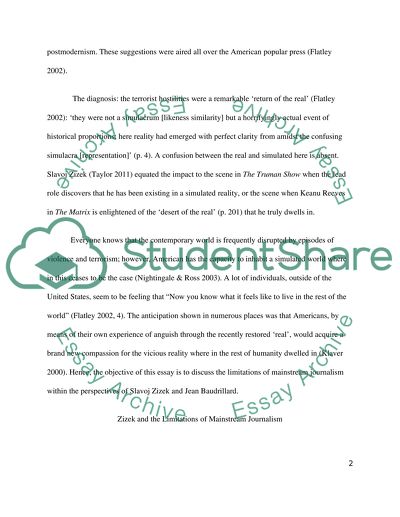Cite this document
(“The Limitation of Mainstream Journalism: The Lens of Zizek and Essay”, n.d.)
Retrieved from https://studentshare.org/environmental-studies/1414570-zizek-and-baudrillard
Retrieved from https://studentshare.org/environmental-studies/1414570-zizek-and-baudrillard
(The Limitation of Mainstream Journalism: The Lens of Zizek and Essay)
https://studentshare.org/environmental-studies/1414570-zizek-and-baudrillard.
https://studentshare.org/environmental-studies/1414570-zizek-and-baudrillard.
“The Limitation of Mainstream Journalism: The Lens of Zizek and Essay”, n.d. https://studentshare.org/environmental-studies/1414570-zizek-and-baudrillard.


